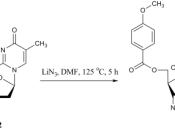Q1 . In 1990, Burroughs Wellcome was spending substantial resources on finding a better treatment for AIDS than what they currently had (which is AZT). Some officials in Burroughs Wellcome feared that if Burroughs Wellcome did not decrease the price of AZT by 20% in 1990, then a backlash from the public will negatively impact the sales of Burroughs Wellcome's other 2 products (Zovirax and Sudafed) and any potential AIDS drug that they might invent/discover in the future (in other words, customers may stop purchasing the aforementioned BW's current/potential drugs owing to the negative publicity of BW). Do you think their fears are well founded? Give reasons for your answer.
In my opinion, Burroughs' fears that the backlash from public will negatively impact the sales of its other two products (Zovirax and Sudafed) and that of any potential AIDS drugs they might invent/discover in future are well founded.
In the present scenario AZT is the only drug available for treatment of AIDS. The benefits of AZT have a direct impact on the patients' quality of life; as a result patients' desire for the treatment is high. Since AZT is the only drug which can extend patient's life expectancy and boost their immune system, its importance to the patients is paramount. Hence, in the short run the negative publicity will not have any impact on the sales of AZT and BWC can go ahead without any further cut in the price of AZT, and recover part of its past-costs and collect some funds for investment in R&D for future drugs. But since one or more drugs is expected to obtain approval by the end of 1991 AZT's timeframe as a monopolist is likely to be a short one.
However, when it comes to other BWC's other two...


